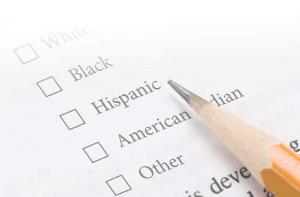
It was not easy growing up half Honduran and half Arab in an all black suburb of Los Angeles in the 1980s and 1990s, especially when "Williams" was my last name. Physically, I look more Latina than anything else, though on occasion I can appear Middle Eastern. Growing up, I was often chastised by the discrepancy between my last name (from my stepfather) and my appearance. To this day, my current last name – Malauulu – yields its share of raised eyebrows. My husband is Samoan.
I was born in Honduras, where at birth I received my mother's maiden name – Ramirez. At the private Honduran school I attended, it was difficult to identify with other students because my mixed ethnicity was widely known. Arabs denied me because I did not bear my father's last name. Hondurans were detached. The only place where I found complete acceptance was within my maternal family.
I immigrated to the United States at the age of seven, speaking absolutely no English. My African-American stepfather adopted me when he and my mom were married—hence the last name, Williams. When I first enrolled in an American school, Latinos on campus teased me because of my "non-Mexican" last name, accusing me of "wanting to be black." The African-Americans referred to me as the new "Mexican" girl at school. White kids ignored me.
In spite of all this, I did not experience any real confusion about my background until I was taking a standardized test in the third grade. The question asked for my ethnicity. I remember feeling nervous as I read each of the choices. None of them applied to me. Even at that age, I was conscious about not wanting to ignore - or show preference to - a certain race (or subconsciously, perhaps a relative). Not wanting to make a mistake on what appeared to be such an important document, I approached my teacher. Loudly, she ridiculed me in front of the quiet class; she mocked my budding English, and told me that I must just mark the "other," choice listed on the document.
I grew up known as "other," which had and still has its share of advantages and disadvantages, both personally and professionally. Growing up in a predominantly black neighborhood, while trying to hold onto my Latin roots, caused a lot of identity confusion. Later, I was bussed to predominantly Hispanic junior and senior high schools for the advanced academic programs they offered. There, I found more diversity in the mixed classrooms, which allowed me to feel more comfortable with my own mixed background.
When I was 16, the DMV denied me a driver's permit on my first visit because all I had on me to prove my identity was a school ID – which was sufficient for other applicants, but not for me. The clerk, who was black, told me that I had to show her a birth certificate because I looked more like a Garcia than Williams. As an undergraduate student at a mostly Caucasian university in a predominantly Jewish suburb of Los Angeles, professors curious about my surname often asked if I was married.
The most trivial issues became monumental decisions for me. Styling my hair a certain way or dating within a certain race took on entirely new dimensions for a girl like me. If I sported a particular outfit, or if my car stereo blasted a particular song, they would label me one way, but if I tossed around slang words, or preferred specific foods, they labeled me another way. I quickly learned to cultivate friends in every ethnic clique on campus to avoid being a total outcast. Today, I am all the better for that.
As an "other," I am able to draw upon a vast wealth of experiences that illustrate how my mixed heritage has influenced me, and the way I do things. For example, my unique upbringing has enabled me to be more sensitive to the diverse population of students I teach at an inner-city public high school in the Los Angeles Unified School District. Our family parties resemble United Nations summits. Most of all, I can fully relate to what my own children – who are a quarter Honduran, a quarter Arab, and half Samoan – go through as they make their way through life being "other."
